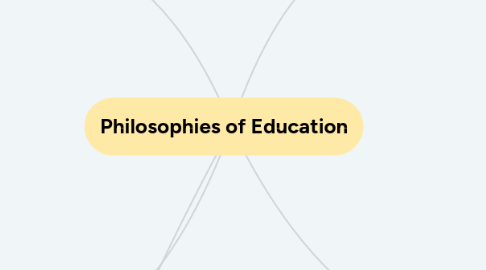Philosophies of Education
by Britni Hickey

1. Perennialism
1.1. "Teaching content that has withstood the test of time"(Kauchak & Eggen, 2017)
1.2. Goal: To train the student with information that doesn't change
1.3. Formal assessments with feedback
1.4. Founding Fathers Educational Philosophy
1.5. Technology is used to make instruction more effective with drill and practice software
1.6. Teachers present ideas and check student understanding with questioning.
2. Essentialism
2.1. "...specific knowledge and skills exist that all people should possess." (Kauchak & Eggen, 2017)
2.2. Focuses on content and standards that all students should master
2.3. Goal: Gain the basic skills needed to survive in the world today
2.4. Teacher led lectures, discussions, and questioning
2.5. Students are assessed formally with frequent feedback based on their knowledge and skill
2.6. This is why and how our state standards are made along with standardized testing.
2.7. Technology is used to make instruction more effective with drill and practice software and is used to prepare students for the real world
3. My educational philosophy identifies most with progressivism with respect to the other 3 philosophies and their importance. While I do agree with our standards and all students learning the same content the world today is pushing teachers into more progressive situations. The social and emotional needs of our students come first. Relationships create the classroom culture, students can't learn if they don't feel welcome or safe.-Britni Hickey
4. Progressivism
4.1. "...Real world problem solving and individual personal development."(Kauchak & Eggen, 2017)
4.2. Focuses on experiences that are pertinent in the real world.
4.3. Connecting student learning to the real world.
4.4. Goal: Develop life skills (i.e. problem solving, decision making, and regulating emotions)
4.5. Teachers guide student learning through projects, discussions, research, and cooperative learning.
4.6. There are more informal than formal assessments to guide student learning
4.7. Schools should ready students for the technology they will have to use outside of their education.
5. Social Reconstructionism
5.1. "...schools, teachers, and students should take the lead in addressing social problems and improving society."(Kauchak & Eggen, 2017)
5.2. Problem based learning, pushing students to be creative problem solvers with the problems facing our nation today.
5.3. Goal: Help create a society that is equal for everyone
5.4. Equal opportunities for everyone
5.5. Technology has been used to get the message out about social injustices and what you/the students can do or have been doing about it.
5.6. Social Media platforms give students a voice to share what changes they want to see and how to make it happen
5.7. Lots of informal feedback and formal feedback based on projects not high stakes testing


